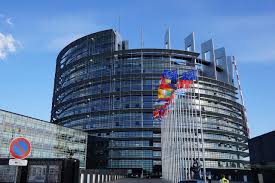Hungarian Prime Minister Viktor Orbán has bluntly told MEPs: “The EU needs to change.”
Addressing Euro deputies on Wednesday, Orbán added that the Hungarian Presidency aims to be the voice and catalyst for change.
According to Orbán, the situation of the EU is far more serious than in 2011, during the first Hungarian EU Presidency.
The controversial Hungarian leader cites the war in Ukraine, escalating conflicts in the Middle East and Africa, migration, risks to the Schengen area, and Europe losing its global competitiveness.
Orbán pledged that Hungary would be an honest and constructive broker holding the rotating presidency of the EU Council, including on the pending 52 legislative files that need to be finalised, and is ready to start inter-institutional negotiations with the Parliament.
He highlighted competitiveness as a key issue for the Presidency, noting that the EU’s economic growth in the last two decades has been significantly lower than in China and US, with the EU’s share of global trade also decreasing.
In his speech to MEPs in Strasbourg, he also pointed to energy prices as a key obstacle.
In a much awaited address Orbán said that “as a result of moving away from Russian energy sources, the EU has lost significant GDP growth”.
“We should not fall into the illusion that the green transition in itself offers a solution to the problem,” he argued, adding that decarbonisation has led to slowing down of productivity and the loss of jobs.
On migration, Orbán warned that “without external hotspots we cannot protect Europeans from illegal migration”.
“The EU asylum system is simply not working. Illegal migration has led to increasing anti-semitism, violence against women and homophobia,” he claimed.
He proposed holding regular “Schengen summits”, and insisted that Bulgaria and Romania should become full members of the free-movement area by the end of the year.
On enlargement, Orbán called for accelerating the accession of the Western Balkan countries and stressed that “without Serbia joining, we cannot stabilise the Balkans”.
The PM, often at odds with the EU, argued for an EU defence industry, a farmer-friendly, competitive agriculture sector, and for the importance of the EU cohesion policy. “Cohesion funds are not charity nor a donation, it is one of the biggest forms of investment policy in the EU, and it is a pre-requisite to balance out the single market,” he said.
In her comments, European Parliament President Roberta Metsola noted that the Hungarian Presidency comes at a time when the EU is taking “significant steps forward” including “supporting Ukraine, strengthening European competitiveness, and building a more stable, secure Europe”.
The centre right Maltese member recalled that the Parliament is the house of democracy, “where the rule of law and freedom of expression are sacrosanct”, and where “we may not always agree, but we will always give space for the respectful sharing of views”.







